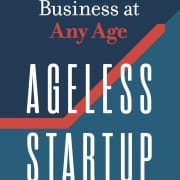The Happiness Advantage: Researching Happiness at Hogwarts
Excerpt from The Happiness Advantage…
For me, Harvard remains a magical place, even after twelve years. When I invite friends from Texas to visit, they claim that eating in the freshmen dining hall is like being at Hogwarts, Harry Potter’s fantastical school of magic. Add in the other beautiful buildings, the university’s abundant resources, and the seemingly endless opportunities it offers, and my friends often end up asking, “Shawn, why would you waste your time studying happiness at Harvard? Seriously, what does a Harvard student possibly have to be unhappy about?”
Hi there! This article is available for free. Login or register as a StrategyDriven Personal Business Advisor Self-Guided Client by:
Subscribing to the Self Guided Program - It's Free!
About the Author

, spent over a decade at Harvard University where he won numerous distinguished teaching awards for his work. He graduated magna cum laude from Harvard and earned a Masters from Harvard Divinity School in Christian and Buddhist ethics. In 2006, he was Head Teaching Fellow for ‘Positive Psychology,’ the most popular course at Harvard at the time. In 2007, Shawn founded Good Think Inc. to share his research with a wider population. When the global economy collapsed in 2008, Shawn was immediately called in as an expert by the world’s largest banks to help restart forward progress. Subsequently, Shawn has spoken in 45 countries to a wide variety of audiences: bankers on Wall Street, students in Dubai, CEOs in Zimbabwe. Shawn’s research on happiness and human potential have received attention from the Harvard Business Review, New York Times, Forbes, CNN, and NPR. To read Shawn Anchor’s full biography, click here.












Leave a Reply
Want to join the discussion?Feel free to contribute!